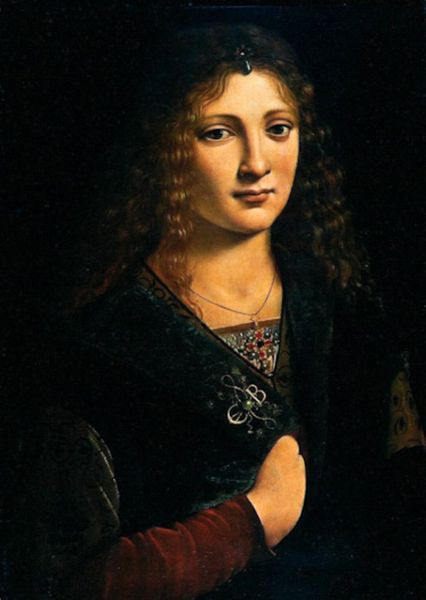Shakespeare’s First Anne October 29, 2012
Author: Beach Combing | in : Modern , trackbackEarlier this year we publicised that famous inventor of the compass, Flavio Gioia, who never, in fact, existed. Today, we offer a parallel tale from English literature: the story of Shakespeare’s first love. We refer here not to that hated appendage, Anne Hathaway, who married the bard after he got her pregnant and eventually got a second-best bed in his will in return, a sure sign of spite. Rather we are here interested in Anne Whatley. In the Episcopal Register at Worcester under 27 November, 1582 there is the following sentence: item eodem supradicto die similes emanavit licencia inter Willielmum Shaxpere et Annam Whateley de Temple Grafton’ ‘And on the same day a [marriage] license was also given between William Shaxpere and Anne Whateley.’
It is pretty exciting stuff because here we seem to see William Shakespeare about to get married at eighteen to one Anne Whateley from/of Temple Grafton, a village a few miles to the west of Stratford-upon-Avon. Then, on the very next day, in the same Episcopal Register comes the marriage bond and Shakespeare goes and marries the pregnant Anne Hathaway instead!
We give only an extract here from that long document. In several lines of Latin we learn the names of the notary, the name of the two bond holders, and the fact that this was given in the reign of Elizabeth ‘Dei gratia Angli Franc. [!] et Hiberniae Reginae fidei defensor’. Then comes the shock, in the English section:
‘The condition of this obligation is such that if hereafter there shall not appear any lawful let or impediment by reason of any precontract, consanguinity, affinity or by any other lawful means whatsoever, but that William Shagspere on the one party and Anne Hathwey of Stratford in the diocese of Worcester, maiden, may lawfully solemnize matrimony together, and in the same afterwards remain and continue like man and wife according unto the laws in that behalf provided…
The horror! On one day Shakespeare is contracted to marry ‘Anne Whately’ (a common surname in the Worcester area) then the next he is marrying ‘Anne Hathwey’, the woman who, in fact, became his wife and who was already carrying the unborn Susanna. Historians have understandably crawled all over this. Anne Whateley was the love Shakespeare could never own, whereas Anne Hathaway was the inconvenient ex, who incidentally gets a lot of unchivalrous stick from the fans of ‘the first Anne’. The Hathaways must have stepped in and forced Shakespeare to the altar when news got out about the other Anne and the impending marriage: forget shotguns, this was a rapier marriage.
By 1939, though, the historians had ceded the ground to the fantasists. In that year William Ross in his The Story of Anne Whateley and William Shaxpere described how Anne W, a nun, had actually written William’s works. She also wrote some of Spencer’s, Marlowe’s and Raleigh’s poems. In fact, she single-handedly pioneered the sonnet in English. A friend of Ross even came up with a portrait of Anne by Sofonisba Anguissola, which heads this post: it is more usually attributed to Giovanni Antonio Boltraffio and it is of a man, but anyway…
There is, of course, a more economical version of history. Anne Whateley was most probably just a dopey scribe’s version of Anne Hathaway. The two surnames are practically anagrams and the scribe in question may simply have got his letters mixed up: note some of the damage done to ‘Shakespeare’ in the register. And yes, Whateley is a common surname in the Worcester area, but that makes it all the more likely that the scribe assimilated an unfamiliar surname to one he knew. Then ‘Whateley’ appears in a record of a marriage license, far less important than the marriage bond. One can almost imagine one of Shakespeare’s sureties pointing out the error and being told, ‘we’ll get it right tomorrow!’ As to Temple Grafton, perhaps this is where they got married… (another post another day)
And the much abused Anne Hathaway? Well, the chances are that she had plenty of rivals, but that her pregnancy sealed the deal. Did Shakespeare love her? Why, on earth, not? There is no real proof to the contrary and their may even be a punning sonnet dedicated to her. And the second-best bed left in the will to Anne H? Perhaps this was just nostalgia: a place where the couple had spent many happy hours… Shakespeare’s odious slight becomes a last gesture of signal affection.
Other historical phantoms? drbeachcombing AT yahoo DOT com



